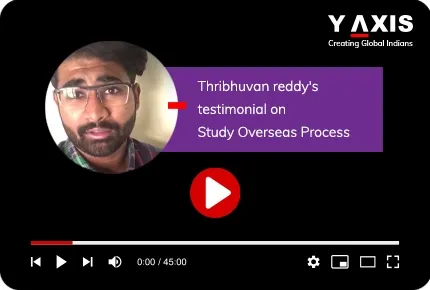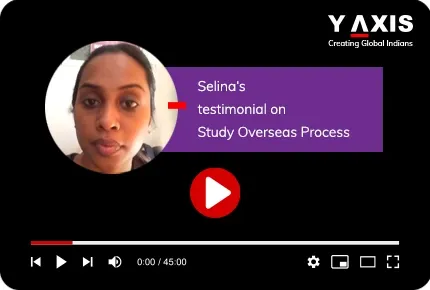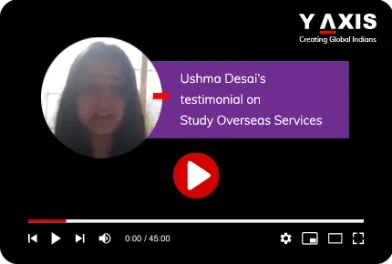- Many countries offer a temporary or PR visa in exchange for an investment
- Investment amounts can range from $50,000 to $500,000 or more



study in korea, study in south korea, study in korea scholarship, how to study in korea, how to study in south korea, study in south korea for indian students after 12th, study in south korea for indian students, study in south korea for international students, colleges that offer study abroad in south korea
Study in Korea with our expert visa services. Unlock top universities, scholarships, and a seamless visa process for a bright future in South Korea.
Why Study in South Korea?
Thinking about studying abroad? South Korea has quickly become one of the top destinations for international students thanks to its world-class universities, affordable education, and excellent job opportunities after graduation. If you're planning to study in South Korea, here’s why it could be the smartest move for your future.
-
Top Korean universities like Seoul National University (SNU), KAIST, POSTECH, and Yonsei are globally ranked for excellence in engineering, science, IT, and business.
-
Affordable tuition and low living expenses make South Korea a cost-effective alternative to Western countries like the USA, UK, or Australia.
-
A growing number of English-taught master's and bachelor's programs are available—ideal for international students who don't speak Korean.
-
Strong connections with major global employers like Samsung, Hyundai, and LG lead to great career opportunities in South Korea after graduation.
-
Enjoy a safe, modern, and culturally rich student life—South Korea blends cutting-edge tech with centuries-old traditions.
-
Access to scholarships for international students including the prestigious Korean Government Scholarship (GKS) and university-specific funding.
What is Korea Student Visa (D-2 Visa)?
Korea has emerged as a top destination for foreign students willing to study abroad. The country offers the D-2 Student visa for students willing to migrate and study in Korea for a full-time, long-term degree course or exchange program. The visa allows you to migrate and stay in the country if you enroll in a degree course or exchange program for more than 90 days. The D-2 Student visa is a single-entry visa which is valid for 3 months. The visa can be renewed after the completion of every study program, provided that you enroll for another exchange program or degree course in Korea.
Popular Programs and Career Trends in South Korea
Bachelor’s Programs
Students can pursue a Bachelor's degree in diverse fields, including:
|
Field |
Courses |
|
Engineering |
Mechanical, Electrical, Civil, IT |
|
Business |
Business Administration, International Business, Marketing, Finance |
|
Technology |
Data Science, AI, Robotics |
|
Life Sciences |
Biotechnology, Medical Science, Environmental Science |
|
Social Sciences |
Psychology, Sociology, International Relations |
Masters in South Korea: Top Programs, Fees & Eligibility for International Students
South Korea is becoming a top destination for international students looking to pursue a master's degree. With globally ranked universities, affordable tuition, and a vibrant academic environment, it offers great value for money and future career growth.
Here’s a complete overview of the most popular master’s programs in South Korea, including tuition fees, course duration, and basic eligibility criteria.
Popular Master’s Programs in South Korea
| Program & University | Duration | Estimated Tuition (USD/year) | Eligibility Requirements |
|---|---|---|---|
| MBA – KAIST, Yonsei | 1.5 – 2 years | 8,000 – 11,000 | Bachelor’s degree, IELTS 6.5+, GMAT (for some), relevant work experience |
| Engineering (Mechanical, Electrical, CS) | 2 years | 6,000 – 15,000 | Bachelor’s in Engineering or related, IELTS/TOEFL, research interest |
| Computer Science / Data Science | 2 years | 7,000 – 14,000 | Bachelor’s in CS/IT, IELTS 6.5+, GRE (sometimes), solid academic background |
| Public Administration – SNU, Korea Univ. | 2 years | 6,000 – 8,000 | Bachelor’s degree, IELTS/TOEFL, statement of purpose, letters of recommendation |
| Global MBA – Korea or Yonsei University | 2 years | 9,000 – 13,000 | Bachelor’s, IELTS 6.5+, GMAT, business background preferred |
| International Studies – Korea University | 2 years | 7,000 – 9,000 | Bachelor’s degree, IELTS/TOEFL, GPA above 3.0/4.0 |
| Biotechnology / Public Health – SNU, POSTECH | 2 years | 5,000 – 12,000 | Science-related bachelor’s, IELTS/TOEFL, possible research proposal |
| Media & Communication Studies | 2 years | 6,000 – 9,000 | BA in Arts or Media, IELTS/TOEFL |
Why Study for a Master's in South Korea?
-
Affordable Education: Tuition fees are lower than in the US, UK, or Australia, while maintaining top academic standards.
-
Global Rankings: Universities like SNU, KAIST, POSTECH, and Yonsei consistently rank among the world’s best.
-
English-Taught Programs: Many master's courses are fully offered in English—especially in STEM, business, and global studies.
-
High Scholarship Availability: Government and university-specific scholarships cover tuition, living expenses, and sometimes airfare.
-
Post-Study Work Opportunities: Graduates are eligible for work permits and can seek employment in South Korea’s thriving tech, research, and business sectors.
Eligibility Criteria for Master’s in South Korea
To apply for a master's degree in South Korea, international students generally need:
-
A Bachelor’s degree in a relevant field
-
Minimum GPA of 3.0 out of 4.0 (varies by university)
-
English proficiency: IELTS 6.5+ or TOEFL iBT 80+
-
GMAT/GRE for certain programs like MBA or Data Science
-
Statement of Purpose, Letters of Recommendation, and an updated CV/Resume
-
Some programs may also require a research proposal or portfolio
Pursuing a master’s in South Korea gives you access to world-class education, modern research facilities, and career prospects in Asia’s innovation hub. Whether you're aiming for a career in engineering, business, public health, or computer science, South Korea offers the right mix of quality, affordability, and global exposure.
Top Universities in South Korea
Korea ranked in the top 50 QS Rankings in 2024 and is known for world-class education options. The table below has the list of top universities in Korea:
|
QS Ranking in 2024 |
Korean Universities |
|
41 |
Seoul National University |
|
56 |
Korea Advanced Institute of Science and Technology |
|
76 |
Yonsei University |
|
79 |
Korea University |
|
100 |
Pohang University of Science and Technology |
|
145 |
Sungkyunkwan University |
|
164 |
Hanyang University |
|
266 |
Ulsan National Institute of Science and Technology |
|
307 |
Daegu Gyeongbuk Institute of Science and Technology |
|
328 |
Gwangju Institute of Science and Technology |
|
332 |
Kyung Hee University |
|
436 |
Sejong University |
|
494 |
Chung-Ang University |
|
498 |
Ewha Woman’s University |
|
509 |
Sogang University |
|
520 |
Kyungpook National University |
|
575 |
Hankuk University of Foreign Studies |
Eligibility Criteria for Indian Students to Study in South Korea
Eligibility to study Bachelor's in South Korea
|
Criteria |
Requirements |
|
Academic |
Completion of 12th grade with a minimum of 70% marks |
|
Language Proficiency |
- English-Taught Programs: IELTS (6.0+), TOEFL (80+) |
|
Documents |
Academic Transcripts, SOP (Statement of Purpose), 1-2 LORs (Letters of Recommendation) |
Eligibility to study Master’s in South Korea
|
Criteria |
Requirements |
|
Academic |
Bachelor’s degree from a recognized institution with at least 70% marks or a CGPA of 7.0+ |
|
Language Proficiency |
- English-Taught Programs: IELTS (6.0+), TOEFL (80+) |
|
Documents |
Bachelor's Degree Certificate, Transcripts, Research Proposal (if required), SOP, 2-3 LORs |
Intakes and Deadlines
South Korean universities typically have two major intakes:
|
Intake |
Application Period |
Semester Start |
|
Spring Intake (March) |
September – November (previous year) |
March |
|
Fall Intake (September) |
March-May |
September |
Scholarships for Indians to study in South Korea
South Korea offers a range of scholarships to international students. Some scholarships cover full tuition, living stipends, and even airfare.
A. Government Scholarships
|
Scholarship |
Coverage |
Eligibility |
|
Korean Government Support for Self-Financed Students |
₩500,000 per month for 1 year |
Self-financed international students with excellent academic records |
B. University Scholarships
|
University |
Scholarship Name |
Coverage |
Eligibility |
|
Seoul National University (SNU) |
SNU President Fellowship |
Full tuition + stipend |
High academic scores & research background |
|
KAIST |
KAIST International Scholarship |
Full tuition + stipend |
Strong academics & research experience |
|
POSTECH |
POSTECH Scholarship |
Full tuition + research grant |
Research-focused programs |
|
Yonsei University |
Global Leaders Scholarship |
50-100% tuition |
High GPA & leadership qualities |
C. Corporate Scholarships
|
Company |
Scholarship Name |
Coverage |
|
Samsung |
Global Scholarship |
₩1,500,000/month ($1,150) + full tuition waiver |
|
POSCO |
Asia Fellowship |
₩1,000,000/month ($750) + full tuition waiver |
Korea Student Visa Requirements
The following are the documents required for Korea Student Visa:
- Completed visa application form
- Recent passport-sized pictures taken against a white background
- Original and valid passport
- Certificate of Admission Letter issued by Korean authorities
- Transfer Certificates from the last attended educational institution
- Documents demonstrating financial affordability
- Recent bank statements (issued not more than 2 weeks prior to your application date)
- Certificate of Scholarship (if applicable)
- Business Registration certificate of the Korean educational institute you are enrolled in
- Exchange Student Agreement (for exchange students only)
- Proof of relationship with your family members
How to apply for a Korea Student Visa?
Step 1: Research & Shortlist Universities:
- Choose universities based on rankings, programs, and career goals.
Step 2: Arrange the following list of documents:
- Academic transcripts & certificates
- SOP & LORs
- Language test scores (IELTS/TOEFL/TOPIK)
- Research Proposal (for research programs)
Step 3: Submit Application Online
While submitting the application form you need to pay an application fee of $50 – $150.
Step 4: Attend Interview (if required)
Admission Offer: Confirm by paying the tuition deposit.
Apply for Visa (D-2 Visa): Processing time: 2-4 weeks
Step 5: Arrive & Register in South Korea
Apply for Alien Registration Card (ARC) within 90 days of arrival.
How much does it cost to study in South Korea?
The Korean government has recently brought down the minimum bank balance required to be eligible for a Korean student visa. The table below lists the details of the amount of funds required for different study programs in Korea:
|
Category |
Cost |
|
Tuition Fees |
- Public Universities: $2,000 – $4,500 per semester |
|
Accommodation |
$300 – $600 per month (Dorms are cheaper) |
|
Food & Transport |
$300 – $500 per month |
|
Miscellaneous |
$100 – $200 per month |
|
Total Estimated Cost per Year |
$8,000 – $15,000 |
Note: The bank statement provided with your application form must reflect the minimum amounts as per your study program specified above.
Korea Student Visa Fees
The visa fee for D-2 Student Visa for Korea is around $60- $90.
Korea Student Visa Processing Time
Korea Student Visa applications are generally processed within 4 to 10 working days.
Post-Study Work Visas for International Students
- D-10 Visa: Up to 2 years for job search in Korea
- E-7 Visa: For specialized study fields
- H-1 Visa: Working Holiday option
- F-2 Visa: Points-based long-term residency
Career Prospects After Graduation in South Korea
|
Sectors with High Job Demand |
Work Visa Options |
|
IT, AI, Engineering, Finance, Biotechnology |
D-10 (Job-Seeking Visa) – Stay for 6 months post-graduation |
Average Salaries in Korea
|
Industry Sector |
Average Monthly Salary (KRW) |
|
Architecture |
3610000 |
|
Banking |
4230000 |
|
Construction / Building / Installation |
2290000 |
|
Engineering |
3280000 |
|
Factory and Manufacturing |
2650000 |
|
Health and Medical |
5800000 |
|
Human Resources |
3680000 |
|
Public Relations |
3910000 |
|
Real Estate |
4400000 |
|
Teaching / Education |
4120000 |
Advantages of obtaining Korean Language Proficiency:
TOPIK (Test of Proficiency in Korean) Level 4+ significantly increases job prospects in South Korea.
How can Y-Axis help you?
Y-Axis, the world’s No. 1 overseas immigration consultancy, provides assistance to all students and aspirants willing to study in Korea. Our team of experienced study-abroad consultants will assist you with the following services:
- Y-Axis Free Counselling Services to help you with course and University selection
- Campus Ready Program to help you fly to Korea with the best and ideal course
- Course Recommendation: Y-Path gives the best suitable ideas about your study and career options.
- Y-Axis Coaching Services to help you with IELTS and TOEFL
- Expert Assistance with acquiring a Korea Student Visa

